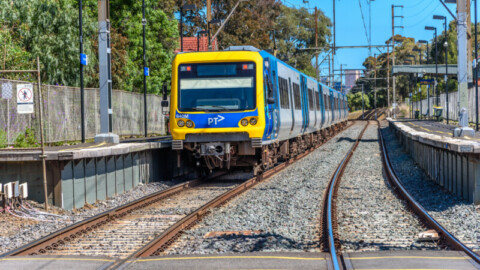Designed to enhance worker wellbeing and work-life balance, a new Culture Standard is being trialled across five pilot projects to improve culture and encourage women to the New South Wales and Victorian construction industry.
The Culture Standard is aiming to improve culture and showcase to workers the opportunity for great careers in the construction industry, while creating an economic boost for the nation, without sacrificing construction efficiency and getting projects built on time.
The new standards were developed by the Construction Industry Culture Taskforce (CICT) – a collaboration between the Victorian and New South Wales Governments, the Australian Constructors Association and leading research academics.
Gabrielle Trainor AO, Chair of CICT, said the pilots are a collaborative effort to improve the culture in the construction industry and attract more women. Typical construction projects see staff work long hours and weekends which can be a barrier to many potential employees.
“The pilot projects will test impacts of flexible and capped working hours on construction workers, implementation of plans aimed at increasing female participation and mental health programs,” Ms Trainor said.
“Flexible and capped working hours are enabling elements of the Standard to reduce stress, improve wellbeing and safety, and, equally importantly, the family lives of construction workers and the attractiveness of the industry as a place to work.
“Improved industry culture is vital at a time when we need at least 105,000 new workers to fulfil the infrastructure pipeline and a drastic lift in productivity.
“The evidence so far is compelling, and the pilot projects will build on the existing research, testing the implementation of the Standard in on-the-ground projects and creating a strong, contemporary evidence base for its adoption.”
Ms Trainor said the evidence strongly suggests that flexibility and capped hours increases productivity, and that working hours are inextricably linked to diversity and mental health outcomes.
“Moreover, there is no evidence that these changes to work hours negatively impact programs or budgets – on the contrary they save money and, more importantly, lives,” Ms Trainor said.
“The collaboration and vision from industry, government, unions and other critical stakeholders to affect real and lasting culture change has been key to securing these pilot projects. We are grateful for the work to date and recognise that the projects represent a big step towards building the evidence base to drive change across all Australian jurisdictions,” Ms Trainor said.
The CICT announced its five Australian-first pilot project sites, which include different project types, contract models and sizes.
The five Australian-first pilot project sites announced by the CICT are:
- Narre Warren Cranbourne Road Upgrade (VIC)
- Brunt Road Level Crossing Removal Project (VIC)
- Wentworth Point new high school (NSW)
- Transport for New South Wales Mulgoa Road Upgrade Project Stage 1 (NSW)
- The fifth pilot includes a study of the experiences of infrastructure trainees in New South Wales
The New South Wales Government Infrastructure Traineeship commenced in 2021 and creates employment and training opportunities for Year 12 school leavers. While studying a Cert IV qualification, trainees complete eight-month rotations with government and industry to get broad exposure to the infrastructure industry. The office-based roles attract women, First Nation peoples and regional youth, and provide unique insight into the culture of the industry from their view.
The pilot project research is to be conducted by a team of Australia’s leading workplace academics led by RMIT’s Professor Helen Lingard and including input from University of Melbourne, Australian National University and University of Tasmania, together with Frontier Economics. It will include gathering input from affected workers, cost-benefit analysis modelling and project data analysis to help test, in a holistic way, the impact of the Standard on the workers, their families, the project, and the broader industry and community.
Pilot projects
Project name: Narre Warren Cranbourne Road Upgrade (VIC)
Major Road Projects Victoria (MRPV)
McConnell Dowell
The Narre Warren-Cranbourne Road Upgrade is part of the $3 billion suburban road upgrades. The works will add an extra lane in each direction between Thompsons Road and the South Gippsland Highway to improve traffic flow, travel times and safety.
Project name: Brunt Road Level Crossing Removal Project (VIC)
Level Crossing Removal Project (LXRP)
Fulton Hogan
Communities in Beaconsfield and Officer will soon benefit from an elevated road bridge at Brunt Road, removing the dangerous and congested level crossing and boosting safety in Melbourne’s south-east.
Project name: School Infrastructure NSW Wentworth Point new high school (NSW)
Contract not yet awarded
A new high school is being developed to cater for the growing population in Wentworth Point, Sydney Olympic Park and Concord West.
The high school will have flexible teaching and learning spaces for approximately 1,500 students as well as a multipurpose hall for sports and performance, outdoor spaces including landscaped recreation areas, games courts, and canteen facilities.
Project name: Mulgoa Road Upgrade Project Stage 1 (NSW)
Transport for NSW
Contract yet to be awarded
The Australian and New South Wales Governments are upgrading Mulgoa Road at Jamisontown between Jeanette Street and Blaikie Road from two to three lanes in each direction and the M4 Motorway off ramps. The project has been designed to support current and future traffic demands of this growing region of Western Sydney.
Industry welcomes trials
Head of Assurance at Infrastructure New South Wales, Marina van Der Walt, thanked the pilot teams for helping chart a positive industry culture.
“We have been delighted with the enthusiasm we have received from all those involved in the pilot projects to help pioneer the culture change that is critical to ensuring we are a sustainable and productive industry with healthy and diverse workers,” Ms van Der Walt said.
Director General of Victoria’s Major Transport Infrastructure Authority, Corey Hannett, said both government and industry have a role to play in improving culture.
“It’s vital to the success of our projects that we have an engaged and healthy workforce. We’re excited to team up with industry to roll the Culture Standard out on Victoria’s Big Build Projects to improve the culture in construction,” Mr Hannett said.
CEO of the Australian Constructors Association, Jon Davies, said the industry is witnessing unprecedented alignment around the need for change – government, industry and unions all agree.
“The current universal agreement on the need for change provides an opportunity to transform our industry to one that represents global best practice and is an industry of choice,” Mr Davies said.
















